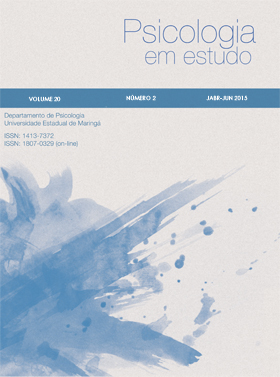HUSSERL E O ARTIGO PARA ENCICLOPÉDIA BRITÂNICA (1927): PROJETO DA PSICOLOGIA FENOMENOLÓGICA
Resumo
O objetivo deste trabalho é a análise do artigo sobre a Fenomenologia exposta na Enciclopédia Britânica, publicado em 1927, de Edmund Husserl, explicitando o projeto de uma psicologia fenomenológica. Entre os anos 1925 até 1928, Husserl realiza importantes desenvolvimentos concernentes ao tema da fenomenologia e da psicologia fenomenológica, apresentando o projeto de uma psicologia fenomenológica em obras como “Psicologia Fenomenológica”, de 1925, “Artigo da Enciclopédia Britânica” (1927), “Conferências de Amsterdam”, de 1928, e “A crise das ciências europeias e a Fenomenologia Transcendental” (1954). Husserl buscou fundar uma filosofia rigorosa e, ao mesmo tempo, formulou uma psicologia racional e pura, isto é, uma psicologia fenomenológica dentro da fenomenologia filosófica. Além de uma introdução à fenomenologia, Husserl destaca no artigo a psicologia a priori pura como fundamento metódico sobre o qual pode por princípio erguer-se uma psicologia empírica cientificamente rigorosa, então, é preciso ir à própria fenomenologia filosófica, compreendendo-a em face da psicologia para pensarmos genuinamente no projeto que Husserl propôs. Assim, a importância deste estudo se dá a partir da necessidade de retomar o que é uma psicologia autenticamente fenomenológica.
Downloads
Referências
Balbontín, C. (2015). El Problema de la Constitución de la Intersubjetividad en el Pensamiento de Husserl. Alpha (Osorno), (41), 251-268. https://dx.doi.org/10.4067/S0718-22012015000200017
Carvalho, J. (1965). Prefácio, In Edmund Husserl, A Filosofia como Ciência de Rigor [pp.V-LVIII], Coimbra: Atlântida.
De Nigris, F. (2015). Intencionalidad, Pasividad y Autoconciencia en la Fenomenología de Husserl. Ideas y Valores (Bogotá), 64 (157), 215-250. https://dx.doi.org/10.15446/ideasyvalores.v64n157.41594
Goto, T. A (2008) Introdução à Psicologia Fenomenológica: a Nova psicologia de Edmund Husserl. São Paulo: Paulus.
Holanda, A.F (2014). Fenomenologia e Humanismo: Reflexões Necessárias. Curitiba, Juruá.
Husserl, E. (1925). Phenomenological Psychology, Freiburg. Lectures, Summer Semester.
Husserl, E. (1965). A Filosofia como Ciência de Rigor. Coimbra: Atlântida.
Husserl, E. (1989). La Crise des Sciences Européennes et la Phénoménologie Transcendantale, Paris: Gallimard (Original publicado de 1936).
Husserl, E. (1971). Phenomenology – Britannica Article, Fourth Draft (Tradução de R.E.Palmer). Journal of the British Society for Phenomenology, 2 (2), 77-90.
Husserl, E. (1990). El Artículo de la Encyclopaedia Britannica (Tradução e edição de Antonio Zirión). Mexico : UNAM (Original de 1927).
Porta, M. A. G. (2013). Edmund Husserl: psicologismo, psicologia e fenomenologia. São Paulo: Edições Loyola (Coleção Leituras Filosóficas)
Whitehead, P. (2015). Phenomenology without correlationism: Husserl's hyletic material. Indo-Pacific Journal of Phenomenology, 15(2), 1-12. https://dx.doi.org/10.1080/20797222.2015.1101830
As opiniões emitidas, são de exclusiva responsabilidade do(s) autor(es). Ao submeterem o manuscrito ao Conselho Editorial de Psicologia em Estudo, o(s) autor(es) assume(m) a responsabilidade de não ter previamente publicado ou submetido o mesmo manuscrito por outro periódico. Em caso de autoria múltipla, o manuscrito deve vir acompanhado de autorização assinada por todos os autores. Artigos aceitos para publicação passam a ser propriedade da revista, podendo ser remixados e reaproveitados conforme prevê a licença Creative Commons CC-BY.
The opinions expressed are the sole responsibility of the author (s). When submitting the manuscript to the Editorial Board of Study Psychology, the author (s) assumes responsibility for not having previously published or submitted the same manuscript by another journal. In case of multiple authorship, the manuscript must be accompanied by an authorization signed by all authors. Articles accepted for publication become the property of the journal, and can be remixed and reused as provided for in theby a license Creative Commons CC-BY.
















